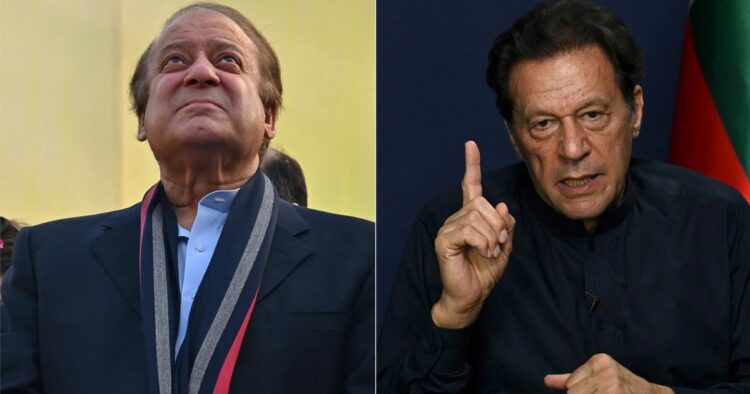Pakistan gears up for a crucial election this Thursday amidst a backdrop of mounting militant attacks, economic turmoil, and heightened political tensions. Analysts predict a tight race with no clear frontrunner emerging.
The main contenders are candidates affiliated with imprisoned former Prime Minister Imran Khan’s Pakistan Tehreek-e-Insaf (PTI) party, which secured victory in the previous national election, and the Pakistan Muslim League (PML-N) led by three-time premier Nawaz Sharif, considered a leading candidate.
Adding to the mix is Bilawal Bhutto Zardari, son of the late Benazir Bhutto, who has mounted a vigorous campaign, offering an alternative to the two dominant parties.
Observers speculate that Pakistan’s influential military might influence the outcome, a force that has historically wielded significant power behind the scenes.
Imran Khan alleges that the military is orchestrating a crackdown on his party, while analysts suggest Sharif enjoys military support. The dynamics have shifted since the last election, where Khan was seen as the military’s preferred candidate, while Sharif faced imprisonment on corruption charges.
Amidst concerns of potential electoral manipulation, analysts warn that stability remains elusive. Economic challenges loom large, with the need for painful solutions irrespective of the election outcome.
Given predictions of no clear majority, forming a stable government will be challenging, particularly as Pakistan faces impending negotiations for a new IMF bailout program, with the current one set to expire in March.
The election results are eagerly awaited, with unofficial tallies expected shortly after polls close, and a clearer picture anticipated by Friday. Small political parties could hold significant sway in government formation, with the need to secure 169 seats in the 336-member National Assembly.
Independents, backed by Khan, could tilt the balance, though Khan has stated his candidates won’t support Sharif or Bhutto Zardari.
The elections occur amidst heightened security concerns, with two blasts hitting election offices in Balochistan, resulting in casualties. The nation remains on high alert, with military deployment at polling stations and tens of thousands of troops and paramilitary personnel mobilized nationwide. Borders with neighboring Iran and Afghanistan have been closed for security reasons.
In this tense environment, Pakistan braces for a pivotal electoral outcome that could shape its trajectory amidst a backdrop of myriad challenges.

















Comments